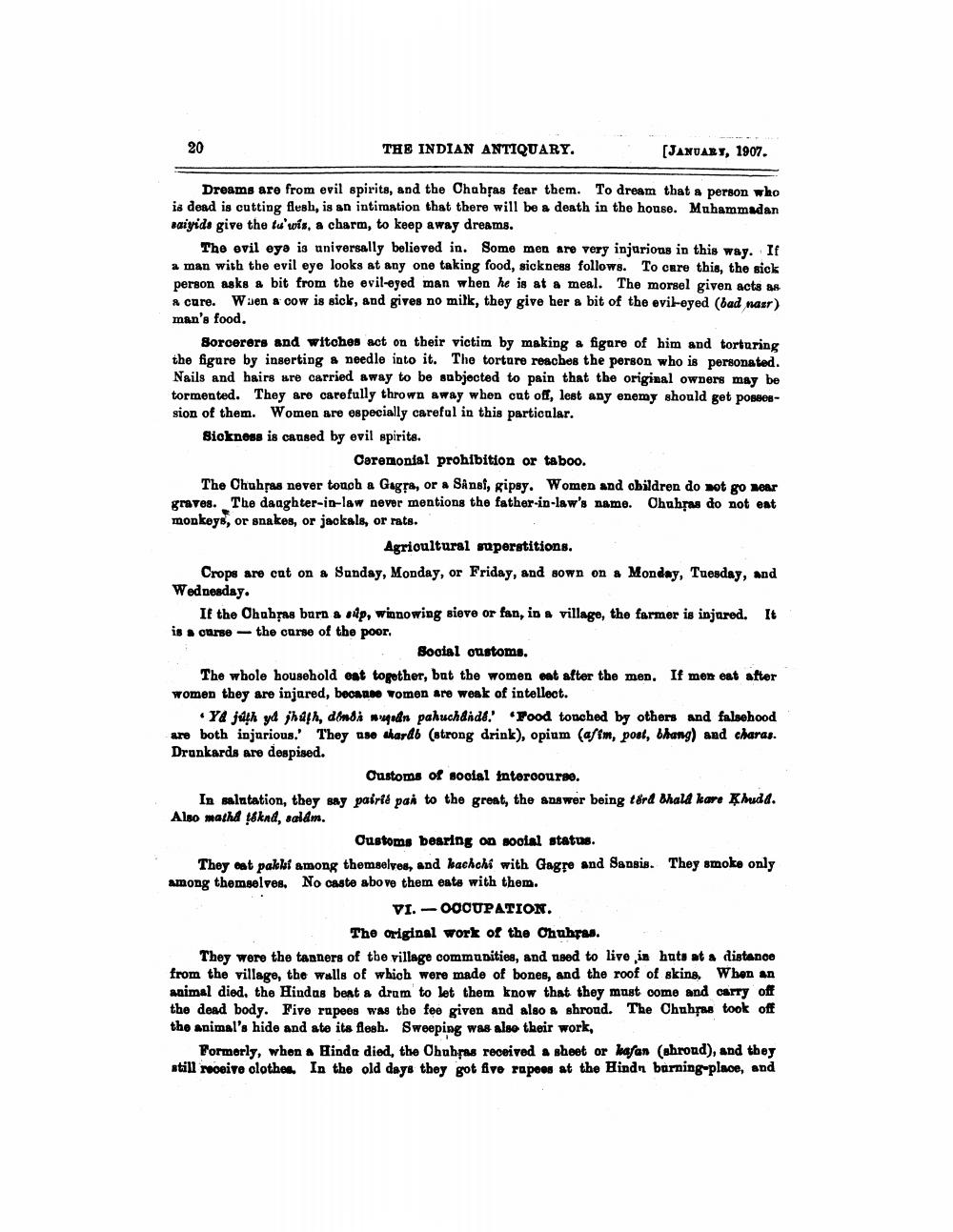________________
20
THE INDIAN ANTIQUARY.
(JANUARY, 1907.
Dreams are from evil spirits, and the Chabras fear them. To dream that a person who is dead is cutting flesh, is an intimation that there will be a death in the house. Muhammadan saiyids give the tu'wis, a charm, to keep away dreams.
The evil eya is universally believed in. Some men are very injurious in this way. If a man with the evil eye looks at any one taking food, sickness follows. To oure this, the sick person asks a bit from the evil-eyed man when he is at a meal. The morsel given acts as a care. Wuen a cow is sick, and gives no milk, they give her a bit of the evil-eyed (bad naar) man's food.
Soroerers and witches act on their victim by making a figure of him and torturing the figure by inserting a needle into it. The torture reaches the person who is personated. Nails and hairs are carried away to be subjected to pain that the original owners may be tormented. They are carefully thrown away when cut off, lest any enemy should get poseession of them. Women are especially careful in this particular. Bickness is caused by evil spirits.
Ceremonial prohibition or taboo. The Chuhas never tough a Gegra, or a Sinsi, gipsy. Women and children do not go wear graves. The daaghter-in-law never mentions the father-in-law's name. Ohuhsas do not eat monkeys, or snakes, or jackals, or rats.
Agrioultural superstitions. Crops are cat on a Sunday, Monday, or Friday, and sown on a Monday, Tuesday, and Wednesday.
It the Ohubras barn a odp, winnowing sieve or fan, in a village, the farmer is injared. It is a curse - the curse of the poor,
Bocial customs. The whole household ont together, but the women eat after the men. If men eat after women they are injared, because women are weak of intellect.
YA játh yd jhdin, donda mugadn pahuchande.' Food tonched by others and falsehood are both injurious.' They ase whardb (strong drink), opium (afim, post, bhang) and charas. Drunkards are despised.
Customs of social intercourse. In salutation, they say pairie pan to the great, the answer being térd Bhald kare Khuda. Also math teknd, saldm.
Oustoms bearing on social status. They oat paklif among themselves, and kachchi with Gagre and Sansis. They smoke only among themselves. No caste above them eats with them.
VI. - OOCUPATION.
The original work of the Chuhfas. They were the tanners of the village communities, and used to live in huts at a distance from the village, the walls of which were made of bones, and the roof of skins. When an animal died, the Hindas bent a dram to let them know that they must come and carry off the dead body. Five rupees was the fee given and also a shroud. The Chuhras took off the animal's hide and ate its flesh. Sweeping was also their work,
Formerly, when a Hinda died, the Ohahras received a sheet or hafan (shroud), and they still receive clothes. In the old days they got five rapoes at the Hindu burning-place, and




